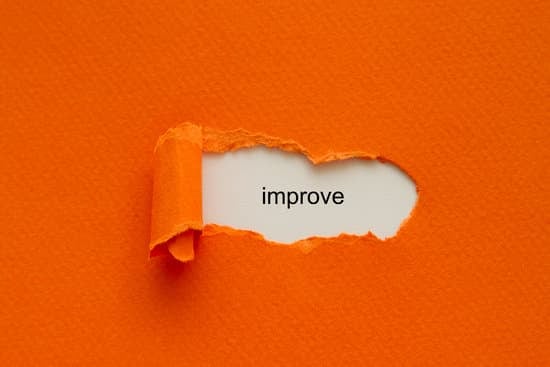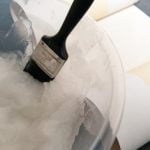Are home improvements on rental property tax deductible? This question often arises among property owners looking to reduce their tax liabilities. Understanding the intricacies of tax deductions for rental properties can help maximize savings and ensure compliance with tax regulations. From types of eligible home improvements to documentation requirements, there are important considerations that every landlord should be aware of when it comes to claiming tax deductions on rental property renovations.
When it comes to tax deductions on home improvements for rental properties, knowing which expenses qualify is crucial. From repairs to upgrades, certain types of improvements can be eligible for deductions. However, it is important to keep in mind that not all expenses may qualify, so staying informed about the specific criteria set by the IRS is essential for landlords looking to take advantage of these benefits.
In addition to understanding what types of home improvements are eligible for tax deductions, documenting these expenses properly is vital for claiming them during tax season. Detailed records, invoices, receipts, and other supporting documentation play a key role in substantiating the expenses incurred on rental property upgrades. By keeping accurate records from the beginning of the project until completion, landlords can streamline the process of claiming tax deductions and avoid any potential issues with the IRS.
Types of Home Improvements Eligible for Tax Deductions
Structural Improvements
Structural improvements are generally considered tax-deductible expenses for rental properties. This category includes renovations or additions that enhance the property’s overall structure, such as adding a new room, replacing the roof, or upgrading the foundation. These improvements can increase the property’s value and functionality, making them eligible for tax deductions. It is important to keep detailed records of all structural improvement expenses to accurately claim them on your tax return.
Energy-Efficient Upgrades
Energy-efficient upgrades are another type of home improvement that may be eligible for tax deductions on rental properties. Installing energy-efficient appliances, windows, insulation, or HVAC systems can not only reduce utility costs but also qualify for various tax credits and incentives. For example, the Federal Residential Renewable Energy Tax Credit allows property owners to claim a percentage of their expenses for installing solar panels or geothermal heat pumps as a credit on their taxes.
Safety and Accessibility Improvements
Safety and accessibility improvements are crucial for maintaining a safe and comfortable living environment for tenants. Upgrades such as installing smoke detectors, handrails, wheelchair ramps, or security systems can be considered tax-deductible expenses on rental properties. These improvements not only benefit the tenants but also contribute to the overall value of the property. Keeping receipts and invoices for these types of improvements is essential when claiming them as tax deductions.
Documentation Required for Claiming Tax Deductions on Home Improvements
When it comes to claiming tax deductions on home improvements for rental properties, documentation is key. Landlords need to keep detailed records of all expenses related to the upgrades and renovations done on their rental properties. This documentation is crucial when filing taxes and can help substantiate the claims made for deductions. Receipts, invoices, contracts, and other relevant paperwork should be organized and readily available for review.
In addition to proof of expenses, landlords may also need to provide documentation that shows the specific improvements made to the rental property. This could include before and after photos, project plans, permits obtained (if applicable), and any other supporting documents that demonstrate the nature and extent of the work done. Having a clear record of the improvements will help support the tax deductions claimed and minimize any potential audit risks.
It’s important to note that not all home improvements are tax deductible on rental properties. According to the IRS, repairs that maintain a property’s existing condition are not typically eligible for deductions. However, improvements that add value or prolong the life of the property may qualify. Consulting with a tax professional can help landlords navigate these rules and ensure they are maximizing their tax benefits while staying compliant with regulations.
| Documentation Required | Claiming Tax Deductions |
|---|---|
| Detailed records of expenses | Substantiate claims for deductions |
| Before and after photos | Demonstrate nature of work done |
| Consulting with a tax professional | Maximizing tax benefits and compliance |
Maximizing Tax Deductions Through Strategic Home Upgrades
One of the key considerations for landlords when it comes to their rental properties is maximizing tax deductions through strategic home upgrades. Making improvements to your rental property can not only enhance its value and appeal to tenants but also provide you with opportunities to lower your tax liability.
The question many landlords often have is, “Are home improvements on rental property tax deductible?” The answer is that yes, they can be, but it’s essential to understand the rules and requirements set by the IRS.
When it comes to maximizing tax deductions through strategic home upgrades, landlords should focus on improvements that directly benefit the rental property. This includes upgrades such as replacing a roof, installing new flooring, updating appliances, or adding energy-efficient features. These types of improvements are considered legitimate business expenses and can be deducted from your rental income, thus lowering your taxable amount.
In order to claim tax deductions on home improvements for your rental property, proper documentation is crucial. Landlords should keep detailed records of all expenses related to the upgrades, including receipts, invoices, contracts with contractors or suppliers, and any other relevant documentation. This will not only help you accurately report the expenses on your tax return but also serve as proof in case of an audit by the IRS.
| Types of Home Improvements | Eligibility for Tax Deductions |
|---|---|
| Replacing a roof | Yes |
| Installing new flooring | Yes |
| Upgrading appliances | Yes |
| Adding energy-efficient features | Yes |
Common Mistakes to Avoid When Deducting Home Improvements on Rental Properties
When it comes to tax deductions for home improvements on rental properties, it is essential to understand the guidelines and regulations set by the Internal Revenue Service (IRS). Making mistakes in claiming these deductions can lead to penalties and audits. Here are some common mistakes to avoid:
- Not keeping detailed records: One of the biggest mistakes landlords make is failing to keep accurate records of their home improvements. Without proper documentation, it can be challenging to prove the expenses incurred for tax deduction purposes.
- Mixing personal and rental expenses: It is crucial to separate personal home improvement expenses from those related to rental properties. Deducting personal costs can raise red flags with the IRS and result in disqualification of legitimate deductions.
- Overestimating deductions: Some landlords may overestimate the value of their home improvements when claiming tax deductions. It is important to accurately assess the actual amount spent on eligible upgrades to avoid any discrepancies.
Additionally, overlooking depreciation schedules, neglecting to consult with a tax professional, and ignoring specific IRS guidelines are also common mistakes that landlords should steer clear of when deducting home improvements on rental properties.
Ensuring compliance with IRS regulations and maintaining thorough documentation are key factors in successfully claiming tax deductions for home improvements on rental properties. By avoiding these common mistakes, landlords can maximize their tax benefits while minimizing the risk of audits and penalties related to incorrect claims.
Remember that seeking guidance from a qualified tax professional is always advisable when navigating the complexities of tax deductions for rental property improvements, as they can provide valuable insights and ensure that you are making informed decisions that align with IRS guidelines.
Tax Benefits of Green Home Improvements on Rental Properties
Energy-Efficient Upgrades
Investing in energy-efficient upgrades for your rental property can not only help reduce utility costs but also provide tax benefits. The IRS offers tax credits for improvements such as installing solar panels, energy-efficient windows, insulation, and HVAC systems. These upgrades not only make your property more attractive to tenants but also contribute to a more sustainable environment. Be sure to keep receipts and documentation of these improvements for tax purposes.
Water Conservation Improvements
Another way to maximize tax benefits on your rental property is by incorporating water conservation improvements. Installing low-flow fixtures, efficient irrigation systems, and water-saving appliances can qualify for tax deductions. These upgrades not only lower water bills but also demonstrate your commitment to environmental responsibility. Make sure to keep track of the costs associated with these improvements to claim the deductions accurately.
Eco-Friendly Materials and Practices
When considering home improvements for your rental property, opt for eco-friendly materials and practices that can qualify for tax deductions. Using sustainable materials like reclaimed wood, bamboo flooring, or recycled glass countertops can be not only beneficial for the environment but also advantageous from a tax perspective.
Additionally, implementing green building practices such as proper insulation, passive solar design, and utilizing natural light can further enhance the value of your property while reducing taxable income. Consult with a tax professional to ensure you are maximizing the potential tax benefits of green home improvements on your rental property.
Considerations for DIY vs Professional Home Improvements for Tax Deductions
When it comes to making home improvements on rental properties, landlords often face the decision of whether to undertake the projects themselves or hire professionals. This decision can have implications not only on the quality of the work but also on the tax deductions that can be claimed. Here are some considerations for landlords to keep in mind when weighing DIY versus professional home improvements:
- Cost Effectiveness: One of the primary factors to consider is the cost-effectiveness of DIY versus hiring professionals for home improvements. While DIY projects may save money upfront, professional contractors may be able to complete the work more efficiently and effectively, potentially saving money in the long run.
- Expertise and Quality: Another important consideration is the level of expertise and quality of work that can be achieved through DIY versus professional services. Certain home improvements, such as electrical or plumbing work, may require specialized skills that are best left to professionals to ensure safety and compliance with regulations.
- Tax Deductions: When it comes to tax deductions for home improvements on rental properties, both DIY and professional services are home improvements on rental property tax deductible However, keeping thorough documentation of expenses is crucial for claiming deductions. Landlords should carefully track costs related to materials, labor, and any other expenses incurred during the improvement projects.
Ultimately, landlords should assess their own skill levels, time availability, and budget constraints before deciding whether to tackle home improvements themselves or hire professionals. For complex or large-scale projects that require specific expertise, it may be more beneficial in terms of both quality and tax benefits to enlist the help of qualified contractors.
By carefully weighing these considerations and consulting with a tax professional if needed, landlords can make informed decisions that optimize their tax deductions while enhancing their rental properties.
Consulting With a Tax Professional for Optimizing Tax Benefits on Home Improvements
In conclusion, it is crucial for property owners to consider the tax implications of home improvements on rental properties. By understanding the various tax deductions available, individuals can effectively minimize their taxable income and maximize their returns. Consulting with a tax professional is highly recommended to ensure that all eligible expenses are properly documented and claimed.
One important aspect to consider when evaluating the deductibility of home improvements on rental properties is the types of upgrades that qualify for tax benefits. From energy-efficient enhancements to general repairs and renovations, there are various categories of improvements that can potentially be deducted. However, it is essential to keep accurate records and receipts to support these claims during tax filing.
Moreover, individuals should be cautious about common mistakes when deducting home improvements on rental properties. Overspending on unnecessary upgrades or failing to comply with IRS regulations can lead to penalties and audits. By strategically planning home upgrades and seeking professional advice, property owners can navigate the complexities of tax deductions and optimize their financial benefits. Ultimately, consulting with a knowledgeable tax professional can provide invaluable guidance in leveraging the tax benefits of home improvements on rental properties.
Frequently Asked Questions
What Expenses Can Be Deducted From Rental Income?
Expenses that can be deducted from rental income include property taxes, mortgage interest, insurance, property management fees, repairs and maintenance, utilities paid by the landlord, advertising costs for finding tenants, legal and professional fees related to the rental property.
What Is Not Deductible as a Rental Expense?
Not deductible as a rental expense are things like personal expenses unrelated to the rental property, improvements that increase the value of the property (which need to be depreciated instead), homeowner’s association fees for personal use properties, and any losses incurred due to personal use of the rental property.
How Long Do You Depreciate Improvements on a Rental Property?
Improvements on a rental property are typically depreciated over 27.5 years for residential properties and 39 years for commercial properties. This means that the cost of improvements made to a rental property is deducted gradually over the course of these periods, rather than all at once in the year they were made.

I’m thrilled to have you here as a part of the Remodeling Top community. This is where my journey as an architect and remodeling enthusiast intersects with your passion for transforming houses into dream homes.





